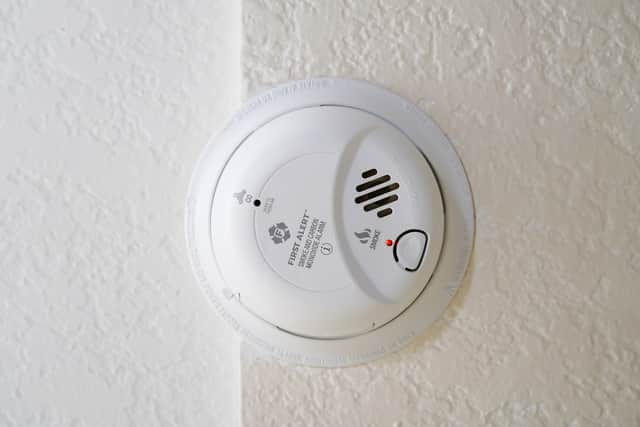Campaign targets young people to raise awareness about dangers of carbon monoxide
and live on Freeview channel 276
Lack of awareness of the risks of CO and the ways you can prevent CO harm from the major poisonous gas are major contributing factors to CO-related deaths and injuries.
With audible CO alarms, which detect and alert you to the presence of CO, being widely available at a relatively low-cost, Wales & West Utilities is calling for young people to take action and protect themselves.
Advertisement
Hide AdAdvertisement
Hide AdNGN has now partnered with the UK’s Gas Distribution Networks (GDN’s) in a high profile awareness campaign dubbed ‘Game Over’.
The integrated, digitally-led campaign builds on previous work by NGN amongst the key 16-24-year-old demographic. It features short films and audio ads distributed through social media, including Facebook, YouTube and Snapchat; streaming services ITVX, All 4 and Spotify; and digital radio via DAX and Octave Audio.
The campaign also includes a bespoke retro arcade game, whilst influential student ambassadors from 16 universities across the UK have been recruited to distribute campaign content and help raise awareness amongst their peers. A university roadshow is also being rolled out, which complements other on-campus work.
Advertisement
Hide AdAdvertisement
Hide AdCarbon monoxide is known as the ‘silent killer’: a poisonous gas that you can’t smell, can’t taste, can’t see or hear. It is produced when any fossil fuel like coal, wood, oil or natural gas doesn’t burn properly. It can pose a serious threat to human health and even result in fatality, with around 40 deaths caused by CO poisoning each year in the UK and 4,000 people treated in hospital as a result of CO poisoning.
NGN Customer Experience Director Eileen Brown said:“Research carried out collaboratively by all GDNs in 2020 highlighted that young people, aged 16-24, are one of the most at risk groups from CO harm as they are less aware about the dangers of CO. Raising awareness amongst this demographic is vital, so we are delighted to come together as a collective GDN group to launch this campaign – targeting those most at risk.


“We want to make sure that young people are equipped with the information that can, quite literally, save their lives.
“This campaign seeks to explain the risks and symptoms of CO poisoning, as well as setting out the simple steps that young people can take to stay safe.
Advertisement
Hide AdAdvertisement
Hide Ad“We urge everyone to stay safe by getting an audible Carbon Monoxide alarm and to ensure that all their gas appliances are serviced annually, including gas boilers, cookers and water heaters…. or it could be Game Over.”
Symptoms of carbon monoxide poisoning include headaches, tiredness, nausea, dizziness, drowsiness, shortness of breath and, in extreme cases, loss of consciousness. Symptoms of carbon monoxide poisoning can be similar to those of food poisoning and the flu. However, unlike the flu, carbon monoxide poisoning does not cause a high temperature (fever).
To stay safe, people are urged to:
- Get an audible carbon monoxide alarm in every room with a gas appliance and test it regularly.
- Make sure that gas appliances are serviced annually: that includes gas boilers, gas cookers and gas water heaters.
- Know the signs of carbon monoxide: Look out for the flames on your gas appliances burning a floppy yellow or orange, not crisp and blue; pilot lights on boilers frequently blowing out; extra condensation inside your window; soot or yellow stains around appliances.
- Know the symptoms of carbon monoxide poisoning: similar to the flu or food poisoning without a high temperature.
- If your alarm sounds, or you suspect carbon monoxide, take action: move outside into fresh air, leaving doors and windows open as you go. Then call the National Gas Emergency Service on 0800 111 999*
Read South Tyneside’s news on the go with our free email newsletters - bringing the headlines to your inbox. Catch up on the day’s news and sport and enjoy even more from your Gazette. Visit our website here to find out more and sign up.
